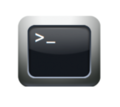Tutorial 1 - Using Your Matrix Account
Contents
[hide]USING YOUR MATRIX ACCOUNT
Main Objectives of this Tutorial
- Learn how to access your Matrix server account from a remote computer.
- Learn several ways to exit your Matrix Linux Account session.
- Understand the Linux command structure and how to get help with Linux command usage.
- Become efficient with Linux command line editing by using short-cut keys.
- Issue a checking program (i.e. Shell Script) to confirm that you accessed your Matrix account.
- Perform LINUX PRACTICE QUESTIONS for additional practice
Tutorial Reference Material
| Course Notes / Software |
Linux Command/Shortcut Reference | ||
| Slides:Tutorials:Windows SSH client Software: | Matrix Account Access
Command Line Editing |
General Linux Commands | |
KEY CONCEPTS
Purpose of Having a Matrix Linux Server Account
While attending Seneca College, you will be using many different computer systems. Some of these servers include: While attending Seneca College, you will be using many different computer systems. Some of these servers include:
| my.senecacollege.ca | Learning Content Management System (Link to Resources / Student Grades / Online Quizzes) |
| ict.senecacollege.ca | Course website for same material as ULI101 WIKI (see below) |
| wiki.cdot.senecacollege.ca | Student Notes / Tutorials / Practice Questions / Resources |
| matrix.senecacollege.ca | Linux Account for "hands-on Practice" and Assignment submission |
Although you need to study concepts (slides) throughout this course, you will also need to get hands-on practice running Linux commands as well as performing and submitting online.
This requires that you connect to a Linux server and become comfortable with issuing Linux commands.
In Unix/Linux, a shell is simply an interface to allow a user to communicate with the Linux computer system (server). Linux shells have evolved (improved) over a period of time. You will be using the Bash Shell which is considered to be user-friendly. By understanding how to issue Linux commands, you can create a file that contains Linux commands (called a shell script) later in this course to automate tasks to make you a more productive Linux user and system administrator.
